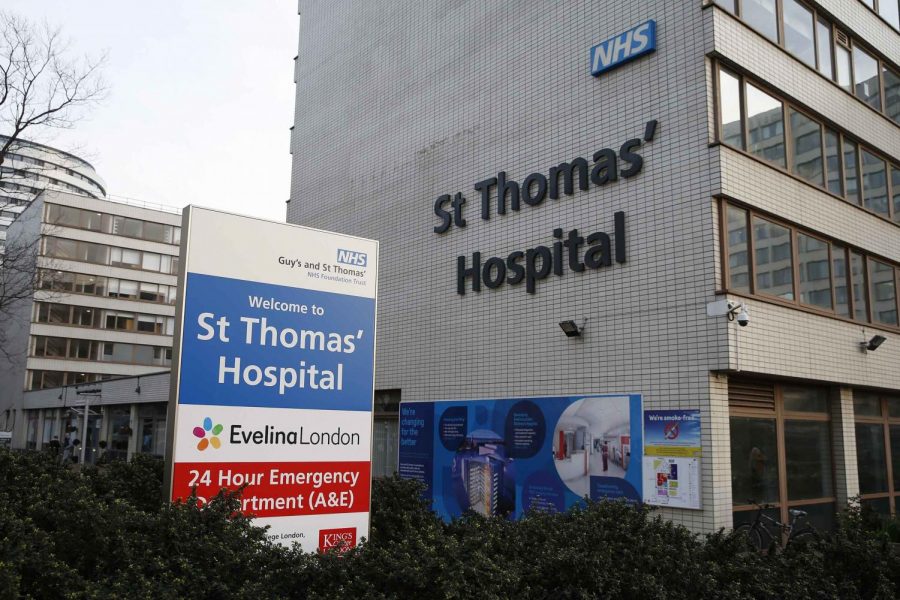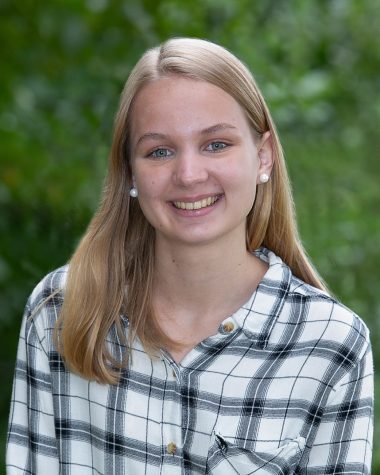Treating and Catching the Coronavirus: One Doctor Recounts his Personal Experiences
April 27, 2020
As the coronavirus pandemic continues to spread, healthcare workers across the world are putting their lives at risk for the public good. While the United States may seem like it is alone in its search to secure adequate Personal Protective Equipment (PPE), other countries like England share the mutual predicament in their own battle with the coronavirus.
Dr. Simon Anderson, a physician at Guy’s and St. Thomas’ Hospital in central London, has been working on the front line with coronavirus patients for over a month and has described his experience both working in these critical conditions, and being infected with the virus.
Dr. Simon Anderson is a gastroenterologist who usually treats digestive tract diseases. However, he has been redeployed to work in the respiratory units to help coronavirus patients. Dr. Anderson has been working at Guy’s and St. Thomas’ Hospital for seventeen years, and he believes that they were one of the first hospitals to start taking in coronavirus patients, thus allowing them to be well prepared for the pandemic: “We were able to bring in a lot more ventilators — 220 I think — and most of them are being used at the moment.” This was also the same hospital that recently cared for Prime Minister Boris Johnson when he was infected with the virus.
Dr. Anderson described some of the biggest challenges that he faces while working, and what he sees in the hospital.
“90% [of coronavirus patients] are older, vulnerable people who have comorbidities, such as diabetes or a transplant of some sort, and although they are not dying, they are sick and cannot really move anywhere,” Dr. Anderson revealed. He shared that these patients need rest and, consequently, cannot be moved.
Further complicating the situation, elderly patients occupy beds and cannot be sent home, as they are still contagious to friends and family.
“It does also become a problem with lots of long-term ill people stuck in the hospital with nowhere else to go,” Dr. Anderson mentioned, as they are being put at risk of contracting coronavirus.
Dr. Anderson also stated that support staff such as social workers, and people who transfer patients back to their homes, do not receive enough credit.
“Once someone has basically recovered, they are still very weak, so they might need things such as physiotherapy and occupational therapy at home, and there isn’t a big focus on that,” Dr. Anderson disclosed. “That’s what keeps people in hospital and stops us from being able to discharge them,” leading to an issue of crowding in the hospital.
Normally, the hospital offers many elective procedures — procedures scheduled in advance, such as surgeries and physical therapy — but with the coronavirus taking over, the regular hospital work has been halted.
“[A]ll the specialties such as cardiology, neurology, etc. are not seeing our normal patients anymore, so we don’t know what’s happened to the patients we normally look after,” Dr. Anderson said. “[Patients] can’t get into the hospital because they are isolating” for their safety.
Nevertheless, Dr. Anderson reiterated that there is a common misconception that medical professionals are neglecting these patients, which is not the case; rather, patients and doctors are trying to ensure their safety.
Dr. Anderson mentioned that the hospital has been doing a sensational job at trying to maintain exceptional care and safety to all of its patients despite many of them being left at home. For example, the hospital has created telephone and virtual clinics for patients. Since Dr. Anderson’s degree and focus is in gastroenterology, many of his patients suffer from diseases such as inflammatory bowel disease, which make them particularly vulnerable. These digital services have allowed him to stay in touch with his patients while also providing a comfortable environment to receive care.
Though physicians such as Dr. Anderson are fighting the virus in England, the circumstances abroad are not unlike what is happening in the United States, where hospitals struggle to acquire a sufficient amount of PPE to support its healthcare workers. Dr. Anderson mentions that the situation in England “is very similar to what is happening in New York City. We have had lots of people who have been bringing [PPE] in,” helping to provide enough for all the medical staff.
Unfortunately, Dr. Anderson contracted the coronavirus at the hospital a few weeks ago. He has been at home for the last two weeks, and plans to return to the front lines soon.
Dr. Anderson explained that some of the symptoms he experienced were difficulty sleeping and many muscle cramps. He described the cramps as if he had gone on a long run and was unable to move because of it. Dr. Anderson later had a swab test done that confirmed that he had contracted the virus.
When asked about his experience with the virus, Dr. Anderson declared, “Yeah, it was odd. You always hear that you are meant to have a fever and a cough, that’s what everyone says, but I don’t think that I had either of them. I did feel very weak and ill. I experienced many muscle cramps, which I now know is another sign of the coronavirus which is very strange.”
“[The hospital] told [me] to stay away [when I had the virus]” he detailed. Furthermore, after some reflection, Dr. Anderson believes that although the hospital now has adequate PPE, the adjustment period into this new environment may have been when he contracted the virus.
“We just had basic masks and, to be honest, I could have been a little more rigorous and not perhaps gone into the wards as willingly as I did without ensuring I had all the PPE right,” Dr. Anderson admitted.
He mentioned that working on the front lines meant that he was nervous to infect other people and his own family.
“Although we still have a reasonably large house, we are still on top of each other and I think that I may have even passed it onto my two daughters,” Dr. Anderson shared. “No one has been ill yet, but I would be surprised if I didn’t [pass it on] because I was not tested for a couple of days after I felt sick.”
Now that he has recovered, Dr. Anderson’s anxiety has lessened.
“Although we don’t know for sure, and I don’t think we will know this information for a couple of months, I think that if [the coronavirus] behaves like any other virus then I’d say people like myself will be immune and can be much more relaxed. It still most definitely means that we need to use our PPE because, of course, you can still transmit the disease once you’ve had it,” he advised.
Doctor Anderson is now returning to work at Guy’s and St.Thomas’ Hospital in the next coming weeks and will be moving from the coronavirus ward to the ICU to work even more closely with patients.
While St. Luke’s School is staying at home to ensure the safety of their communities, one can learn from Dr. Anderson’s experiences. The physician is working in hopes that he can help make an impact for the greater good, while putting his own life at risk. The SLS community can help the pandemic in many ways, big and small. One could contribute to their community by volunteering (making masks for healthcare workers, writing letters of gratitude) or even by simply staying at home. The more people that stay home and follow the World Health Organization’s guidelines (WHO) during the pandemic, the higher the chance that healthcare officials can make a difference to flatten the curve of the ever-growing pandemic.




